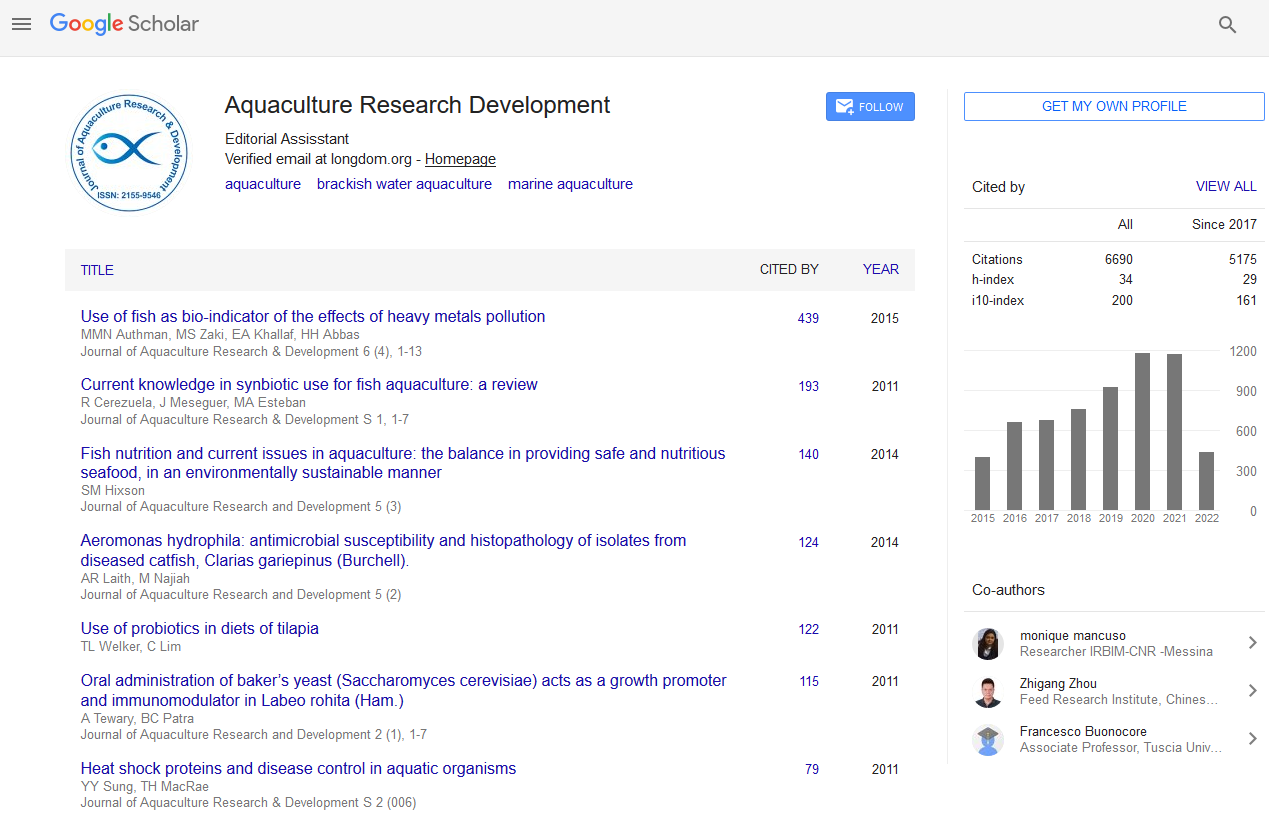PMC/PubMed Indexed Articles
Indexed In
- Online Access to Research in the Environment (OARE)
- Open J Gate
- Genamics JournalSeek
- JournalTOCs
- Scimago
- Ulrich's Periodicals Directory
- Access to Global Online Research in Agriculture (AGORA)
- Electronic Journals Library
- Centre for Agriculture and Biosciences International (CABI)
- RefSeek
- Directory of Research Journal Indexing (DRJI)
- Hamdard University
- EBSCO A-Z
- OCLC- WorldCat
- Scholarsteer
- SWB online catalog
- Virtual Library of Biology (vifabio)
- Publons
- MIAR
- University Grants Commission
- Euro Pub
- Google Scholar
Useful Links
Share This Page
Journal Flyer

Open Access Journals
- Agri and Aquaculture
- Biochemistry
- Bioinformatics & Systems Biology
- Business & Management
- Chemistry
- Clinical Sciences
- Engineering
- Food & Nutrition
- General Science
- Genetics & Molecular Biology
- Immunology & Microbiology
- Medical Sciences
- Neuroscience & Psychology
- Nursing & Health Care
- Pharmaceutical Sciences
Abstract
Starvation: An Alternate Measure to Improve Immunity and Physiology of Red Sea Bream During Edwardsiella Tarda Infection
Sipra Mohapatra, Tapas Chakraborty, Rami Haj-Kacem, Sonoko Shimizu, Takahiro Matsubara, Kohei Ohta
Dietary restrictions during infectious challenges are quite common in animal kingdom. In the present investigation, we aimed to explore the positive implications of short-term starvation in Edwardsiella tarda infected red sea breams. Starvation resulted in depleted transcription of several iron binding protein (Hepcidin, Transferrin), which could have reduced the bacterial colonization in starved- infected fish. This was confirmed by the significantly (P<0.05) low bacterial load in the spleen and muscle of starved-infected fish. Gills showed mild damage to the secondary filaments architecture as well as elevated mucus production in the starved-infected fish compared to the fed ones. Massive mucus cell hyperplasia was observed in starved-placebo fish, which further increased after infection. Decreased activities of serum anti-oxidative enzymes and reduced total antioxidant capacity after starvation was suggestive of improved stress response and heightened stress withstanding capacity of these fish. Relatively higher haemoglobin and phagocytic activity along with the increased cytokines (TNFα, IL- 1β) level in starved-infected groups than their fed counterparts indicated the better immune condition of the former group. Additionally, our data also demonstrated that starvation enhanced the survivability and overall disease resistance index of infected fish, indicating that short period of starvation might be a beneficial measure to fight against infections.


